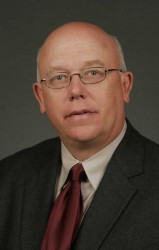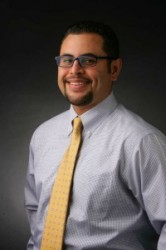See more political experts discussing topics such as foreign policy, health care, education, Congress and more at ElectionVU, our special election website.
Power and benefit of negative ads

Campaign ads are flooding airwaves across the primary states right now as Republican candidates vie for the presidential nomination. And even though negative political ads are sometimes hard to watch, they serve an important purpose, says John Geer, Distinguished Professor of Political Science. Geer is author of In Defense of Negativity: Attack Advertising in Presidential Campaigns, which is the leading text on the issue. Geer conducted an in-depth analysis of negative advertising in presidential campaigns from 1960 to 2004. “Politics is often rough and tumble and you need to know the good and the bad of all candidates,” he said. “Attack advertising provides the ‘bad,’ augmenting the quality of information voters have before they head to the polls.”
Geer can talk about what impact campaign ads have on voters and how candidates shift their image to appeal to voters through ads.
His other books include Nominating Presidents: An Evaluation of Voters and Primaries and From Tea Leaves to Opinion Polls: Politicians, Information and Leadership. Geer is also co-director of the Center for the Study of Democratic Institutions at Vanderbilt.
Watch video of Geer talking about the media’s role in attack ads on ElectionVU.
Religious bias among political candidates

With two Mormons among the Republican contenders, a study conducted during the 2008 election offers insight on how willing voters might be in accepting a Mormon candidate.
In the study, “Two Steps Forward, One Step Back? Bias in 2008 Presidential Election,” John Geer, Brett Benson and other researchers examined the strong religious dimension of bias by some U.S. voters and its implications for current and future presidential politics. The data came from two Internet-based experiments run by Polimetrix in November 2007 and October 2008. The first survey was done shortly before Mitt Romney’s speech about his Mormon faith in Texas on Dec. 6, 2007. The second was conducted just before the presidential election. The researchers found that voters who had increased contact with members of a religious minority generally were less biased against a presidential candidate from that particular group. However, among so-called born again Southerners, social contact did not diminish bias toward a Mormon candidate in the primary election. The study did find less bias by Southern Evangelicals toward the Mormon candidate in the general election.
“Our findings do not rule out the possibility of a Mormon candidate being selected to run against President Obama,” Geer said. We just think that a higher jump might be needed for Romney or Huntsman.” Read more about the research on ElectionVU.
Politicians, patriotism and the Bible

The historic relationship between patriotism and scripture – and its impact on the rhetoric of American politicians – can be discussed by James P. Byrd, whose areas of expertise include biblical interpretation in American history and religion and war. “Colonial-era preachers like George Whitefield who were part of the religious revivals of that time inspired the patriots of the American Revolution,” Byrd said. “As preachers put politics in their sermons, politicians began using religion to convince voters of the correctness of their beliefs.” Byrd noted that in the patriotic scripture, wartime violence was spiritually meaningful if fought under God’s inspiration. “The ramifications of this message continue today as the United States has come to define itself and its destiny largely through the justice and sacredness of its wars,” he said. Byrd, an assistant professor of American religious history, has a forthcoming book, The Bible and Wartime Patriotism in Revolutionary America (Oxford University Press).
Republicans are fumbling the immigration issue

Republican candidates who present tough stances on the immigration issue in speeches and in debates are alienating many voters who might be inclined to support the GOP, Vanderbilt political scientist Efren Perez says. Perez collected survey data, set to be released in March, showing that the Latino community is far broader and differentiated than the Democratic bloc of voters perceived by many. The survey found that when politicians make very aggressive references to illegal immigrants, they are in essence turning off many Latinos who might vote for them.
“This type of xenophobic rhetoric further limits the effectiveness of efforts by some Republicans to reach out to Latino voters,” said Perez. “There are many third- and fourth-generation Latinos who have very little connection to Latin America anymore and these folks are very integrated into American society. They are business owners and might be more responsive to Republican ideas and principles.” But Perez found that xenophobic rhetoric is making Latinos more strongly attached to their ethnic group and less trusting of politics and politicians in Washington D.C. See video clips of Perez talking about how to attract Latino voters and the problem with our current immigration policy on ElectionVU.
How to make political polls fair

Before the actual election, polls are the main measure of success and failure. How do unbiased pollsters make a political poll fair? Co-director of the Center for the Study of Democratic Institutions, Josh Clinton is an expert on the science and structure of political polls. He says that question wordage, order and the sample of voters are crucial to a fair poll. See video of Clinton explaining what makes a fair poll and how polls influence lawmakers’ decision making on ElectionVU.
[Media Note: Vanderbilt has a 24/7 TV and radio studio. Use of the TV studio with Vanderbilt experts is free, except for reserving fiber time. More political experts can be found at the ElectionVU website.]
Media Contacts: Amy Wolf and Jim Patterson, (615) 322-2706